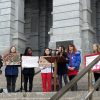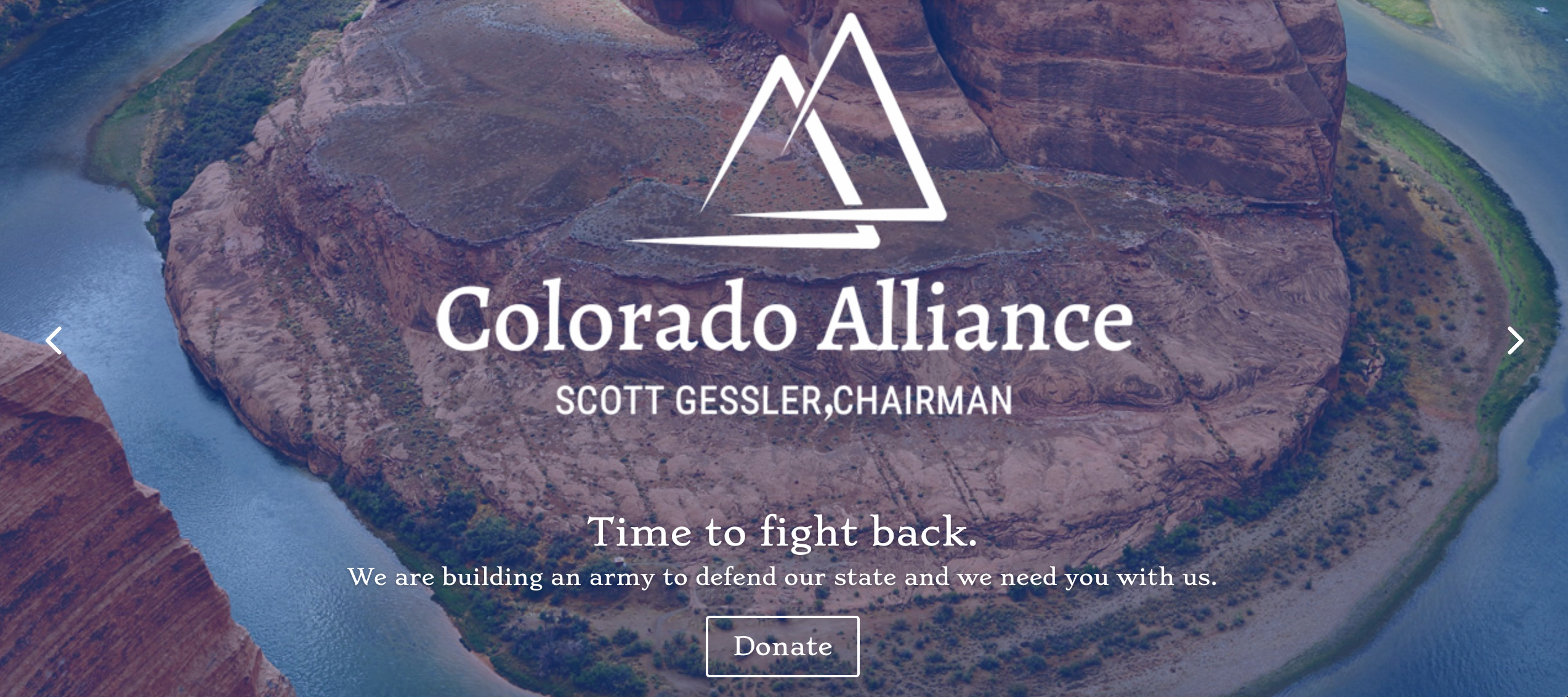Former Colorado Secretary of State Scott Gessler never shied from the spotlight while in office, but he’s kept a lower profile since returning to private practice. He recently made the news for his work on behalf of the long shot campaign to recall Gov. Jared Polis (D-CO).
It turns out he’s also been working on another project- an under-the-radar effort to mobilize grassroots conservatives called The Colorado Alliance. Its stated goal: “build an army to defend our state.” So what does he have to show for it?
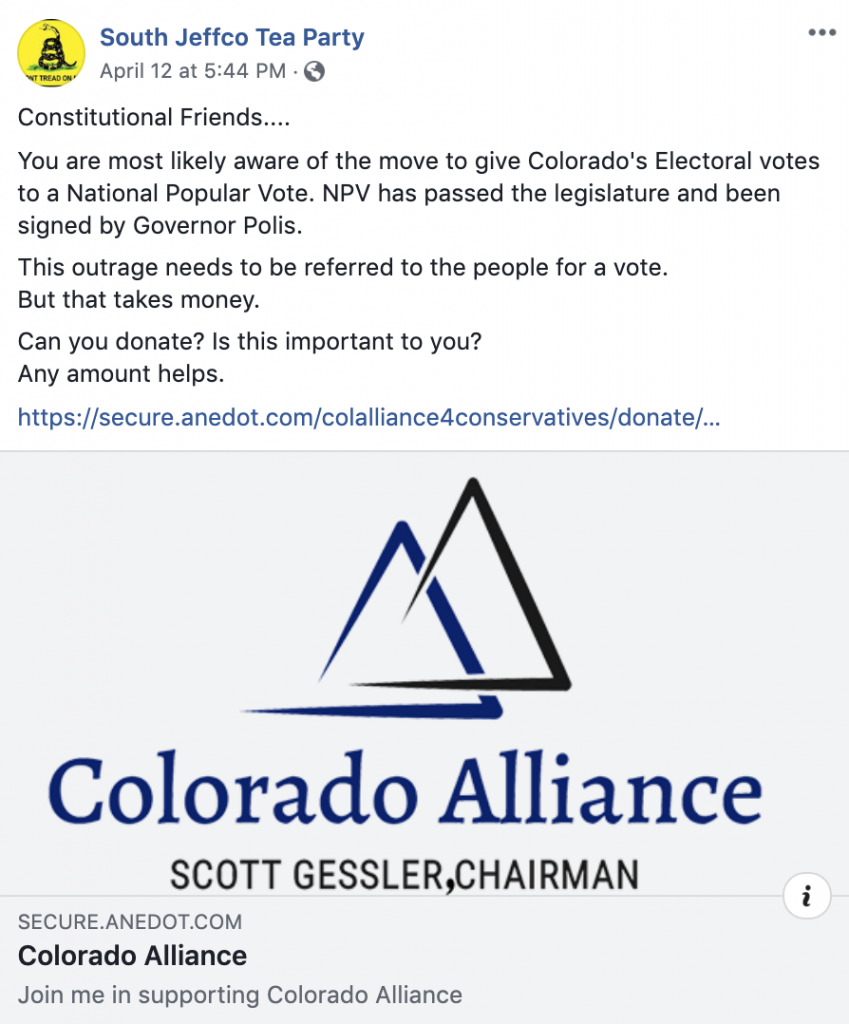
Gessler’s been using this group to sporadically communicate with (and raise money from) conservative Coloradans for the two plus years since it was founded a week after Trump’s election. He’s using it to support another statewide effort to overturn a vote- repealing the bill passed by the legislature and signed by the Governor that will would add Colorado to those states awarding their electoral votes to the winner of the national popular vote.
Gessler, a Republican, didn’t found the Colorado Alliance by himself. He listed a partner on his federal filing documents: Ben Engen.
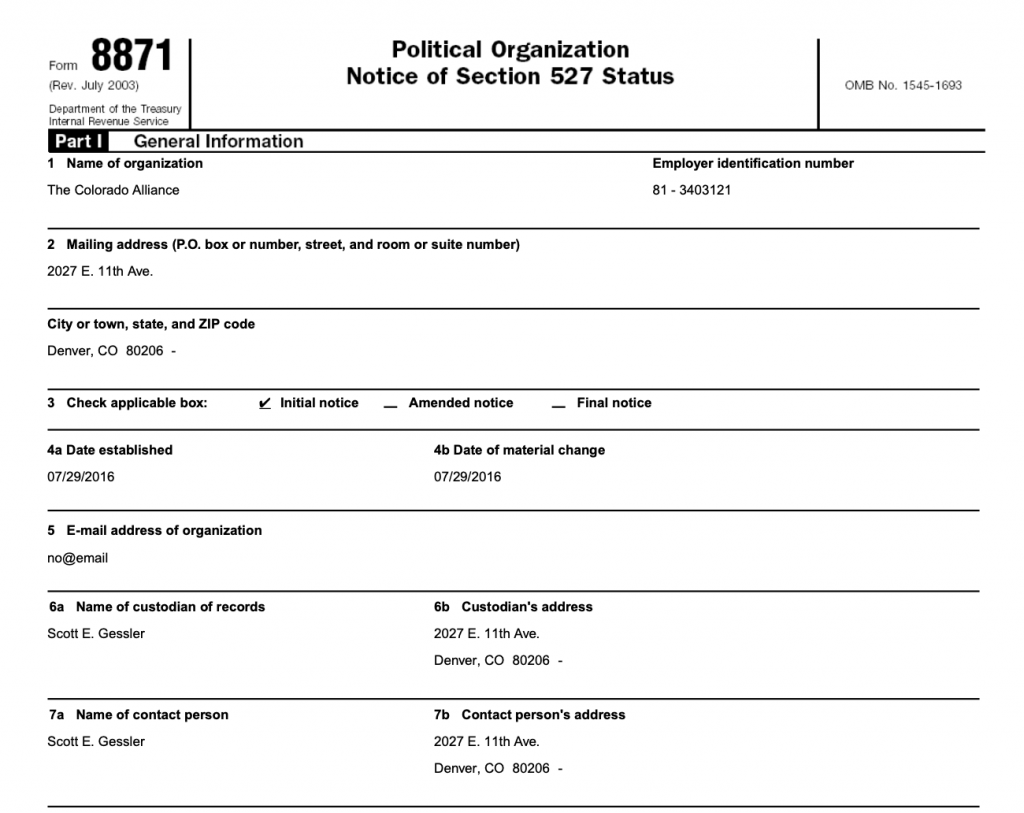


Engen, who also runs Constellation Political Consulting, made news this week for comments he made during a recall training in Buena Vista. Video of his instructions to strategically schedule a recall election to “blindside” voters, hopefully lowering turnout as much as possible, was posted on Facebook by those he was training.
According to the Colorado Alliance website, its mission is:
“holding liberal officeholders accountable, mobilizing voters and activists, and helping restore common sense policies to our state. We are building an army to defend our state and invite you to join the movement.”
So far, however, the “army” appears to be little more than a website, email list and a bank account.
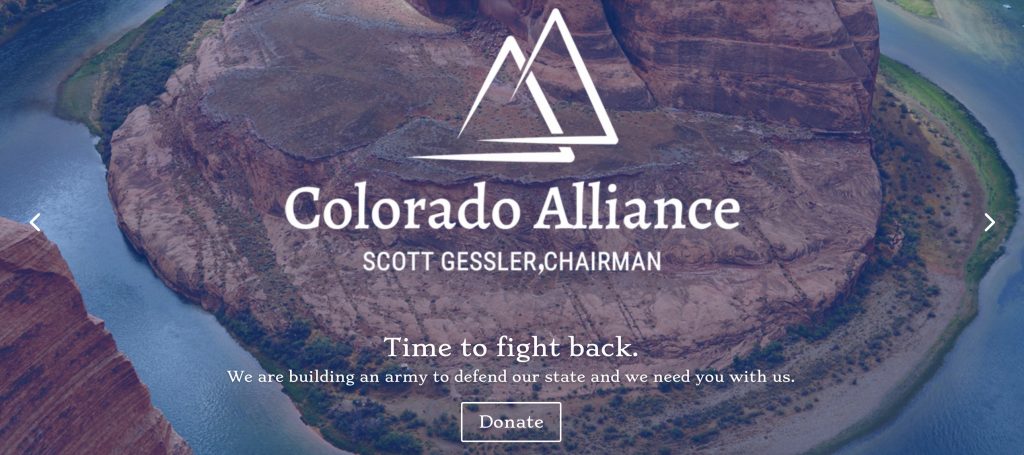
Besides a prominent donation button and a biography of Gessler himself, the only link on the site is to a four-page memo summarizing the results of a 2018 election postmortem. The site says the research is based upon “1,500 survey responses, and interviews [with] over two dozen political readers…we believe this is the deepest and most thorough post-election analysis ever done by conservatives in Colorado.”
Asked to describe the group and its work, Gessler gave the following summary of the Colorado Alliance, which is a so-called “527” political organization operating independently from the campaigns of political candidates:
“We’re a conservative grassroots group. We reached out to people who have been active in conservative or Republican efforts in the past, both supporters of my campaigns and others. We work to keep people informed, to mobilize people for efforts. For example on the national popular vote [repeal effort] we aren’t collecting signatures, but we distributed information about how to sign the petition if they want to do it.
For the report, we reached out in two emails with a very extensive survey asking for feedback [on the 2018 election]. We supplemented those results with conversations with candidates and political operatives and donors, as a way to do an analysis and post-mortem to get a sense of where conservative leanings are among the activist base. We asked whether President Trump’s policies should have been stressed more or less by Republican candidates.”
The resulting memo offers three conclusions:
1. A large number of grass-roots respondents recognize that we face systemic problems and a lack of infrastructure level.
2. While many pollsters tell us we should be quick to blame Donald Trump, that view might not be entirely accurate… Colorado Republicans will have to figure out how to approach the President, in a way that retains conservative support yet minimizes losses among those who dislike Trump.
3. Colorado Republicans have fallen behind in voter registration.
The proposed solution to solve the voter registration gap is simple: meet them where they’re at. The memo states:
Democrats and Colorado liberal organizations maintain full time voter registration efforts, targeting liberal neighborhoods and events likely to attract Democrat-leaning voters. Republicans and conservatives must do the same, but at events likely to attract conservative voters, such as gun shows, country music concerts, Christian music concerts, etc. These are cost effective ways to register conservative voters, and Republicans continue to miss the boat.
The memo also promises that “by early February we hope to publish the most authoritative analysis ever done by Conservatives in Colorado.”
During his phone interview, Gessler promised he would share the full report with Colorado Times Recorder, but never replied to subsequent email and phone requests.
Gessler has since used his platform to let supporters to know that he wouldn’t run for chair of the Colorado Republican Party, to remind them that he was Trump campaign lawyer in 2016, and to again ask for donations.
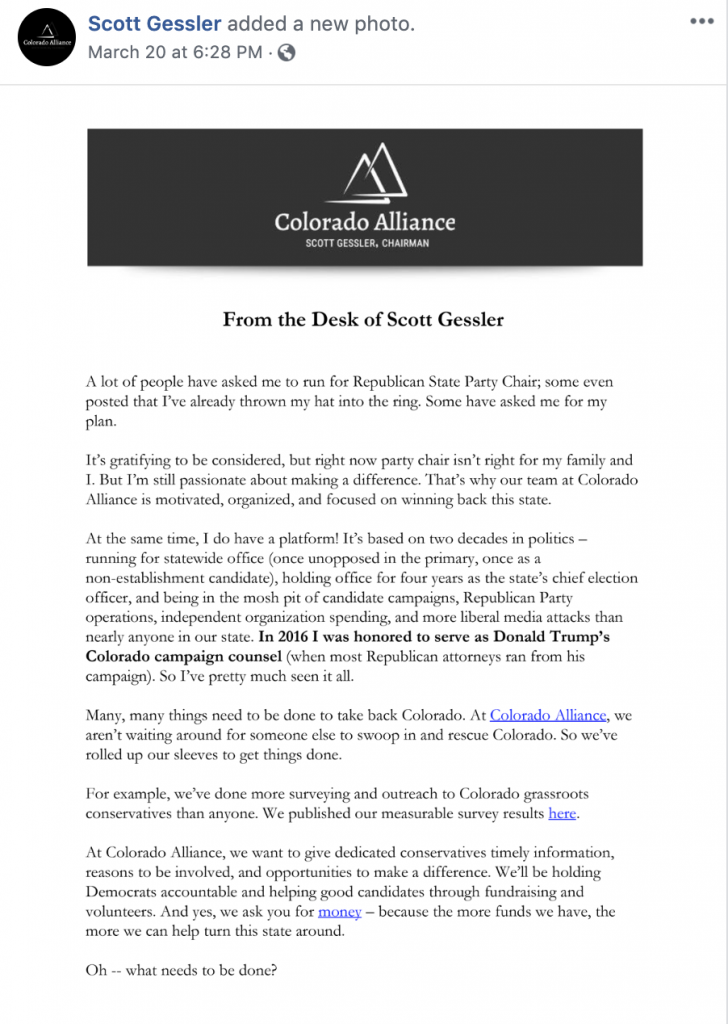
Gessler launched the Colorado Alliance in 2016 with $10,000 from auto dealer Terry Stevinson, and another $5,000 from EIS Solutions’ charter school advocacy project “Ready Colorado.” The Douglas County GOP and a handful of other donors chipped in $1,000 each. Of the nearly $23,000 raised in 2016, Gessler paid StoneBrook Staffing about $13,000 for “Post-Election Calls and Voter Canvassing.”
The committee then went dormant–at least as far as fundraising and spending–for nearly two years, until late last year, when campaign finance filings show donations once again coming in, including $500 from Pete Coors.
Overall the Colorado Alliance has reported raising just over $35,000 and spending just over $23,000 since its creation.
Besides the 2018 election report and the website and promoting the group itself, there isn’t much visible activity from the Colorado Alliance. Gessler acknowledged that the group wasn’t really looking for media attention. If he’s indeed building an army, he’s doing it very quietly.



